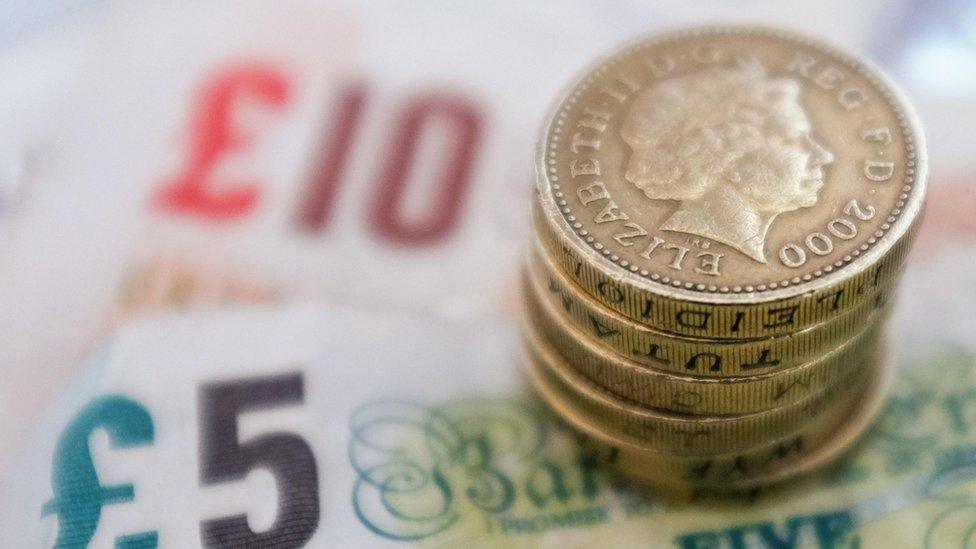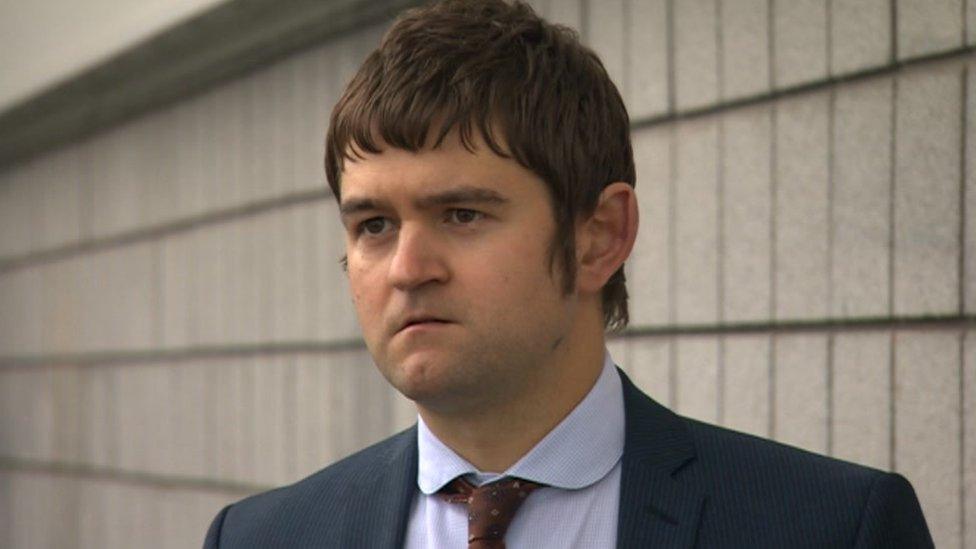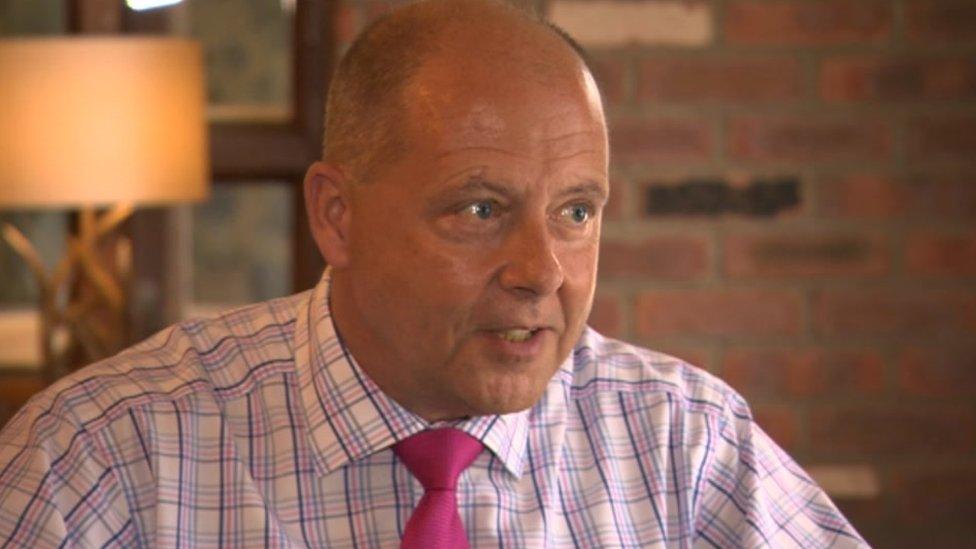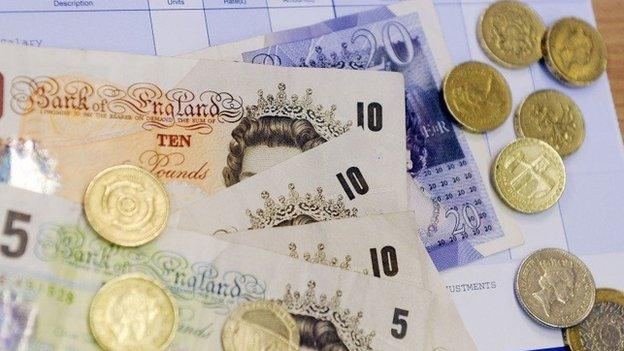Some workers earning less than four years ago, figures show
- Published

Twelve areas across England have seen wages fall
Over the past five years, the typical worker in England has seen a 6% rise in gross annual earnings, according to the Office for National Statistics. However, there are pockets of the country where instead of growth, employees have seen wages fall.
The biggest drop was in the London borough of Bexley where gross annual pay was £1,743 lower in 2015 than in 2011. Elsewhere, Nottingham saw a fall of £1,695, while workers in Richmond upon Thames were earning £1,101 less.
Doncaster, in South Yorkshire, is also home to some of the lowest paid people in England.
Gross median pay - that is the wage of a worker in the very middle of a pay scale - is £26 lower here compared to the same time five years ago.
In 2011, the typical employee in Doncaster earned £18,747 before taking into account the effect of tax and benefits.
In 2015 the same employee received £18,721.

Doncaster Chamber of Commerce chief executive Daniel Fell said developments such as the airport link road would help boost the economy
In the 12 areas where wages decreased, wages have been further diminished by inflation - the measure of how much the cost of goods and services increase by each year.
In Doncaster, business leaders recognised the town lags behind, but remained optimistic about the future.
Daniel Fell, chief executive of Doncaster Chamber of Commerce, recognised the town's problems.
He said: "We have many systematic challenges that are decades in the making so we can't flick a switch and fix things like youth unemployment and low level aspiration."
There are of course specific local issues as to why wages have fallen in these 12 areas, including sluggish economic growth.
It means businesses struggle to generate profits, resulting in less money to pass on to workers.

Hotel manager Craig Dowie said incentivising the workforce had proved a good way of rewarding staff rather than a flat pay rise
Other factors for wage falls include the rising number of self-employed workers.
Across England there has been a 14% increase in the number of people working for themselves with government analysis estimating such a section of the workforce earn around half as much as regular employees, external.
There are also four million people in England working in the public sector who have had their pay rises capped at 1% since 2011, external further impacting on overall wage rises.
Some employers have taken a different approach to rethinking how to pay employees.
Craig Dowie, who runs the Crown Hotel in Bawtry, has not boosted the standard pay of his employees for a number of years, instead rewarding them with incentive schemes and bonuses.
"We do not go across the board and say 3% this year, 2% this year, that's the reality of where we are."
He added: "What you've got to be is more creative on sales, you've got to look at your business 24 hours a day, you've got to making money 24 hours a day."
- Published4 January 2016

- Published2 November 2015
